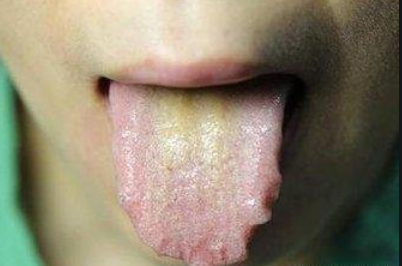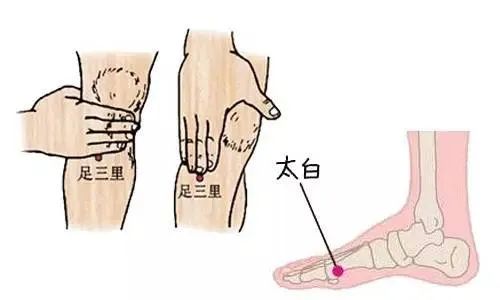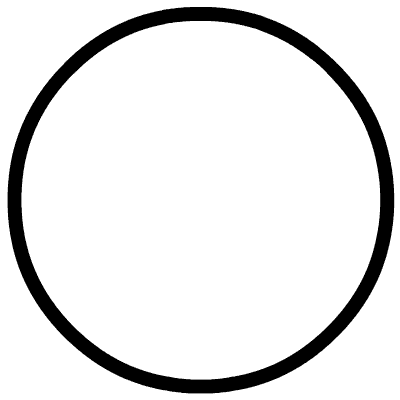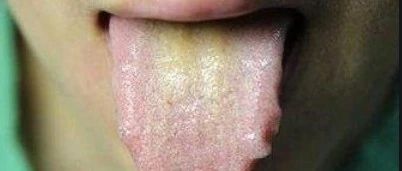Individuals with tongue imprints often belong to the group of those with Qi deficiency.
Each person’s constitution
reacts differently in various seasons,
thus, the methods of health preservation also vary.
What symptoms are associated with Qi deficiency?
✦1✦
People with Qi deficiency generally experienceshortness of breath and reluctance to speak, feeling too weak to talk, and may even have a sensation of breath being stuck in the chest; they often feel fatigued and lack energy. Symptoms like dizziness, palpitations, pale complexion, and lack of luster are common.
✦2✦
Those with Qi deficiency often feelsensitive to wind, constantly fearing exposure to cold winds, and indeed, after being exposed to wind, they may sneeze or even catch a cold.
✦3✦
After eating, they often feelweak in the limbs, and when lying on the sofa, they do not want to move. This is due to the “Spleen governing the limbs” principle, as they may feel bloated in the abdomen and have slow digestion.
✦4✦
With slight exercise, they start tosweat profusely, and easily experienceshortness of breath. The body may begin to accumulate excess fat, feeling soft, and even drinking water can lead to weight gain, especially in the abdomen. The saying “overweight individuals often have Qi deficiency” describes this condition.
✦5✦
Severe Qi deficiency can lead toedema and evenprolapse of internal organs, such as gastric prolapse, uterine prolapse, rectal prolapse, etc. Some individuals may experience bleeding due to Qi deficiency, such as excessive menstrual flow in women.
✦6✦
People with Qi deficiency often have aswollen tongue, with imprints on the sides, a thick coating, and an abundance of saliva on the tongue.

Why do we experience Qi deficiency?
Qi deficiency is often caused by damage to the Spleen and Stomach, which are sources of Zheng Qi (upright Qi). We rely on the refined substances from food to live; if you eat indiscriminately,the Spleen and Stomach get damaged, leading to issues with the source of Zheng Qi, which is theprimary cause of Qi deficiency.
Modern individuals often overeat; it is said that people go into buffets leaning against the wall (because they are hungry) and come out leaning against the wall (because they are stuffed). How can they not damage their Spleen and Stomach?
Additionally, a lack of exercise is also a cause of Qi deficiency. People drive to buy groceries, take elevators, and use washing machines, and when they have free time, they just sit on the sofa,leading to weak Qi and blood circulation, which can also result in Qi deficiency.
Staying up late to surf the internet or working overtime without rest can also deplete Zheng Qi, leading to Qi deficiency.
Individuals with Qi deficiency are prone to catching colds—due to insufficient Wei Qi (defensive Qi) to protect the body from external pathogens, a cold wind can easily lead to a cold. In TCM, this is referred to as “Wei not solid”; Wei Qi is a type of Qi that protects the body from external evils. If Qi is deficient, the defense is inadequate, making it natural to catch a cold when exposed to cold wind.
Some children, when slightly exposed to wind, may start to have a runny nose, feel cold all over, and sneeze, while others are unaffected. This is due to Qi deficiency leading to weak Lung Wei, making them more susceptible to colds.
At this time, it is essential to find ways totonify Qi. Tonifying Qi involves the lungs, spleen, and kidneys, with theSpleen and Stomach being key.
How should we tonify Qi?
Using moxibustion to tonify Qi and blood is more effective than the Shi Quan Da Bu Tang (All-Inclusive Great Tonifying Decoction). Moxibustion inherently has the function of promoting the circulation of Qi and blood.
Step 1: Moxibustion to regulate the Spleen and Stomach.
The Spleen and Stomach are the sources of Qi and blood. According to the “Ling Shu” (Spiritual Pivot), “The middle burner receives Qi and extracts essence, transforming it into blood,” indicating that blood is generated through the transformation of the Spleen and Stomach. The Spleen has the function of controlling blood, so treating Qi and blood conditions must emphasize regulating the Spleen and Stomach.
Step 2: Moxibustion to nourish Liver blood and tonify Qi deficiency.
The liver stores blood, regulates Qi, and aids in the transformation of the Spleen and Stomach, thus nourishing Liver blood is fundamental to regulating Qi and blood. TCM believes that “Liver stagnation leads to Spleen deficiency”; emotional distress and anger can damage the liver and spleen, leading to depletion of Qi and blood.
Step 3: Moxibustion to dispel cold evil.
TCM states, “Blood flows when warm, but congeals when cold”; cold evil can cause blood stasis, obstructing the meridians and hindering the generation of Qi and blood, easily leading to joint disorders, gastrointestinal discomfort, or triggering coughs. In winter, it is essential to wear hats, gloves, and scarves when going out, and to avoid cold and raw foods at home. Elderly individuals with often insufficient Qi and blood should pay extra attention.

Acupuncture points for moxibustion: Taiyuan (Taiyuan Point), Zhongwan (Zhongwan Point), Zhangmen (Zhangmen Point), Zusanli (Zusanli Point), Taibai (Taibai Point)
Health moxibustion should be done 3-4 times a week, with each session lasting 20 minutes per point. Moxibustion should be done for 2-3 days followed by a day of rest.
Dietary therapy for Qi deficiency:
For individuals with Qi deficiency, I recommend this dietary therapy: 100 grams of Huai Shan Yao (Chinese yam), 150 grams of fried Yi Yi Ren (Job’s tears), and 30 grams of Qian Shi (Euryale seed), ground into powder, and consumed as a paste daily.
People with Qi deficiency tend to sweat easily with slight movement, and after sweating, if exposed to cold wind, they are more susceptible to catching colds than others. Therefore, individuals with Qi deficiency find it particularly challenging in environments with prevalent air conditioning. When sweating, they should wait until the sweat has subsided or wipe it off before entering air-conditioned spaces.
In modern times, many people exhibit tongue imprints, indicating widespread Qi deficiency. Everyone must learn to protect themselves and help their bodies escape the state of Qi deficiency!
 Copyright Notice: This content and images are compiled from the internet, non-commercial use. If there is any infringement, please contact the editor for deletion. Please indicate the source when reprinting.Reminder: The above content is for reference only and may not be suitable for all populations. It is recommended to adjust under the guidance of a physician.
Copyright Notice: This content and images are compiled from the internet, non-commercial use. If there is any infringement, please contact the editor for deletion. Please indicate the source when reprinting.Reminder: The above content is for reference only and may not be suitable for all populations. It is recommended to adjust under the guidance of a physician. Acupuncture Point Inquiry
Acupuncture Point Inquiry

